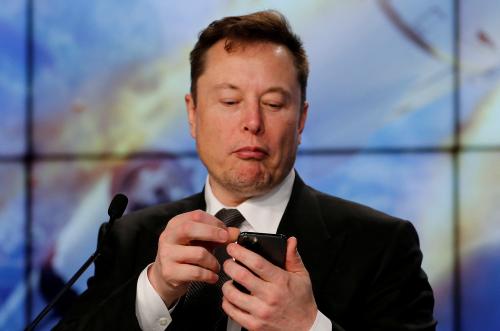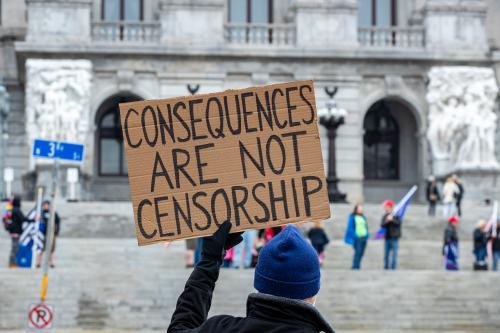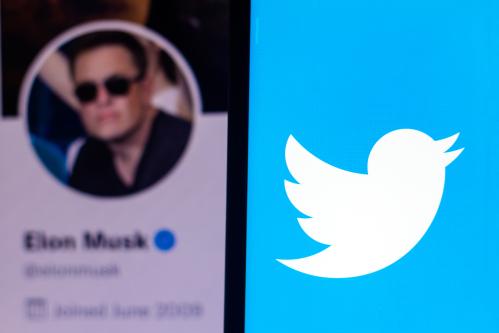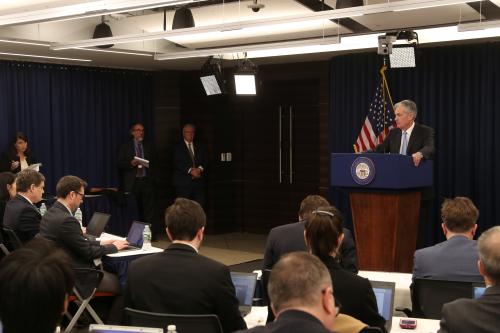Let’s stipulate that Elon Musk is brilliant. With Tesla, he revolutionized the somnambulant American automobile industry. His SpaceX lifts payloads into space at a cost far below NASA. He is revolutionizing battery technology and production. And with Starlink, he owns 3,000 satellites orbiting above our heads. No wonder he is the world’s richest person. Musk’s achievements have been amazing!
But in buying Twitter, the world’s biggest megaphone, has Musk’s reach exceeded his grasp? The previous successes have been in businesses that are heavily rules-based. Now, he is operating in an area – social media – where there are few rules. It’s a whole new ballgame, even for a genius.
There are physical, mathematical, and scientific rules that govern engineering decisions. You can’t ignore those rules and expect to produce a battery or a spacecraft. Similarly, the businesses Musk has transformed operate in a governmentally regulated environment. There are rules for how automobiles are built and operate. There are rules for spacecraft construction and deployment. There are battery safety standards and rules. These rules provide certainty and stability.
Now Musk has gone far beyond his prior experience, stepping into an arena noted for the absence of rules. Nothing is certain nor stable when it comes to issues such as free speech, hate speech, content moderation, and navigating moral and ethical dilemmas – all while trying to make money. Indeed, the challenge of social media – in both its public interest and business interest impacts – is how to address such issues in an ever-evolving environment free of behavioral standards.
The man who made his money in businesses governed by hard science and regulation now exists in a messy reality where companies make money by selling advertisements to users attracted by virtually unbridled outrage, conflict, and misinformation. So far, Mr. Musk has been more freewheeling than surefooted in meeting his new challenge.
Moral challenge
To many on the political right, Musk is a hero for his promise to get rid of Twitter’s content rules and restore “free speech” on Twitter. Bloomberg reported he “intends to scrap lifelong bans on users,” including the lifting of Donald Trump’s ban for allegedly glorifying the events of January 6th. The Trump ban, he told an audience in May, “was a morally bad decision, to be clear, and foolish in the extreme.”
Now, Mr. Musk is confronted by his own moral challenges.
After overpaying for the asset, he needs to dramatically increase its revenue. But Twitter’s revenue is reportedly falling since the acquisition, in large part because advertisers don’t know what to expect. Those advertisers do know, however, that they don’t want to be associated with bigotry, racism, sexism, and untruth.
A collection of civil society groups wrote Twitter’s top 20 advertisers urging them to “cease all advertising on Twitter globally if he [Musk] follows through on his plans to undermine brand safety and community standards, including gutting content moderation.” Trying to calm the waters, Musk met with representatives of the group and pledged “Twitter will not allow anyone who was de-platformed for violating Twitter rules back on platform until we have a clear process for doing so, which will take at least a few more weeks.” So far, however, big name advertisers such as General Motors, Pfizer, Volkswagen, Audi, and General Mills don’t seem reassured.
Twitter’s absolutist base went wild in response, however. “You cannot have a free speech platform and take the advice of the ADL,” someone called The Columbia Bugle tweeted. A Twitter user called “catturd” with reportedly 900,000 followers tweeted, “I was 100% wrong about @elonmusk changing Twitter. The new Twitter moderation council is just a bunch of far left fanatic groups who were never targeted here. No average Joes, no real Conservatives, no one to represent the PEOPLE ACTUALLY TARGETED!”
The Musk dilemma was in full view when he tweeted to confirm “Twitter has had a massive drop in revenue.” But then went on to attack “activist groups pressuring advertisers, even though nothing has changed with content moderation, and we did everything we could to appease the activists.” Not willing to stop with that statement, however, the last line of the Musk tweet was red meat to the absolutists: “Extremely messed up! They’re trying to destroy free speech in America.”
Standards are good for business
Elon Musk, the physicist and engineer who found great success in businesses enjoying the stability of rules and regulations, is discovering that following rules (and complaining about rules) is much easier than living without them and trying to run a large-scale platform by the seat of your pants.
Rules protect consumers. Rules protect competition. Rules even protect capitalists by creating a solid environment for their business. Even Adam Smith, the father of laissez-faire capitalism, believed rules were necessary for his invisible hand to function.
In the absence of any U.S. rules for the behavior of digital platform companies, Elon Musk will not only be torn between his self-proclaimed “absolutist” position about online speech, and the expectations of the advertisers, but also by the need to obey the rules of other nations on whose networks Twitter rides.
The European Union has done what the U.S. has failed to do: establish rules about responsible content behavior. “Be it cars or social media, any company operating in Europe needs to comply with our rules – regardless of their shareholding. Mr. Musk knows this well,” EU Internal Market Commissioner tweeted when Musk announced his Twitter takeover. “He is familiar with European rules on automotive, and will quickly adapt to the Digital Services Act,” he added.
Musk and Bretton subsequently appeared together in a video. “We’re very much of the same mind,” Musk promised, explaining he would be “exactly aligned” with the EU rules requiring content moderation. Obeying the EU’s rules will probably help with advertising revenue but will put him in conflict with his absolutist constituency and perhaps even stoke the politics of America First.
A job for Solomon
Mr. Musk is exceptionally smart, but defining a path forward that navigates between his pledge to be a “free speech absolutist,” the concerns of advertisers, and the content moderation requirements of the EU is a job for Solomon.
Times have changed for Elon Musk. He is now outside the rules-based worlds in which he has flourished. In his whole new unregulated ballgame, Mr. Musk just may come to appreciate the need for rules to establish behavioral expectations for online services less.
The Brookings Institution is committed to quality, independence, and impact.
We are supported by a diverse array of funders. In line with our values and policies, each Brookings publication represents the sole views of its author(s).







Commentary
Could Elon Musk grow to like regulation?
November 7, 2022